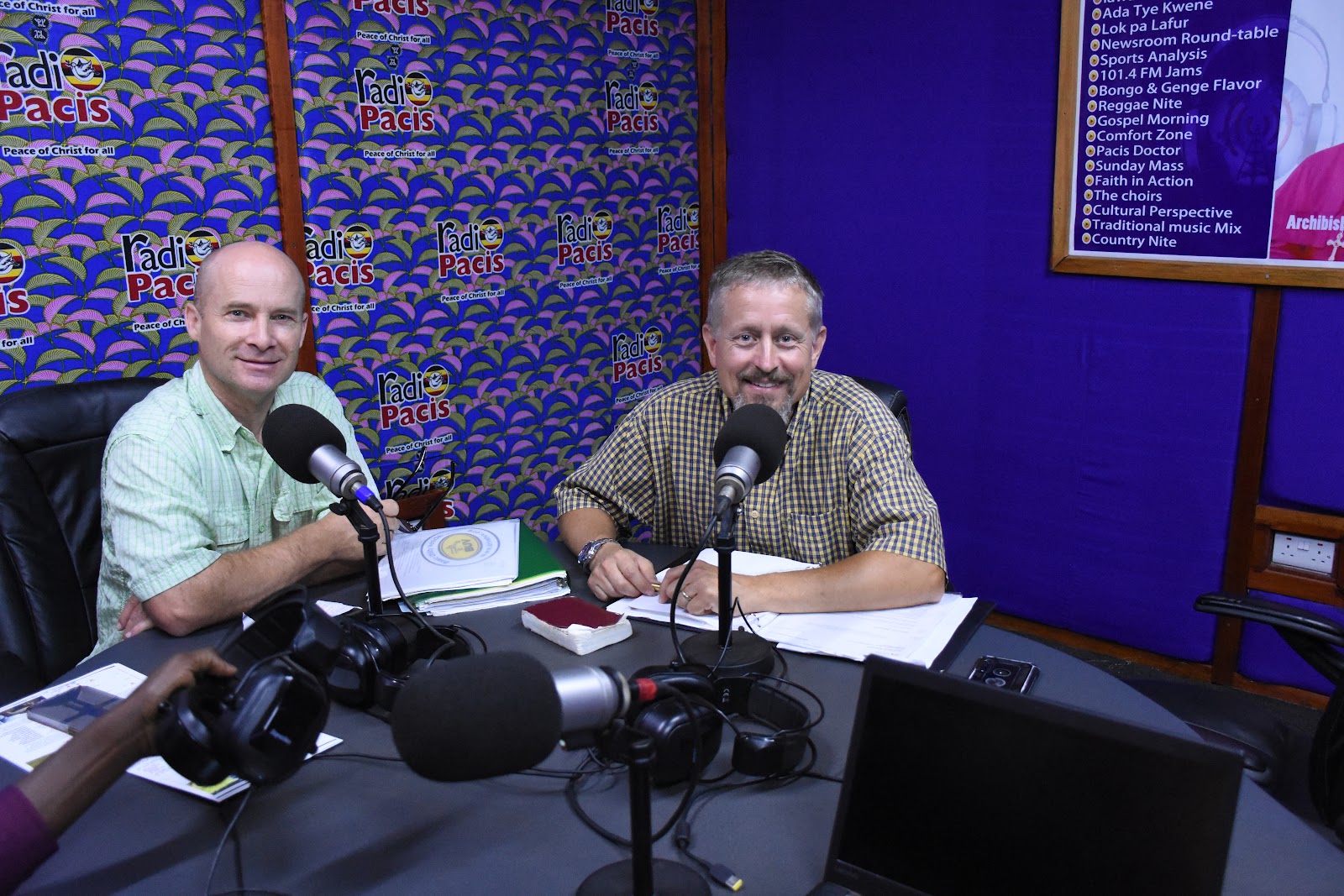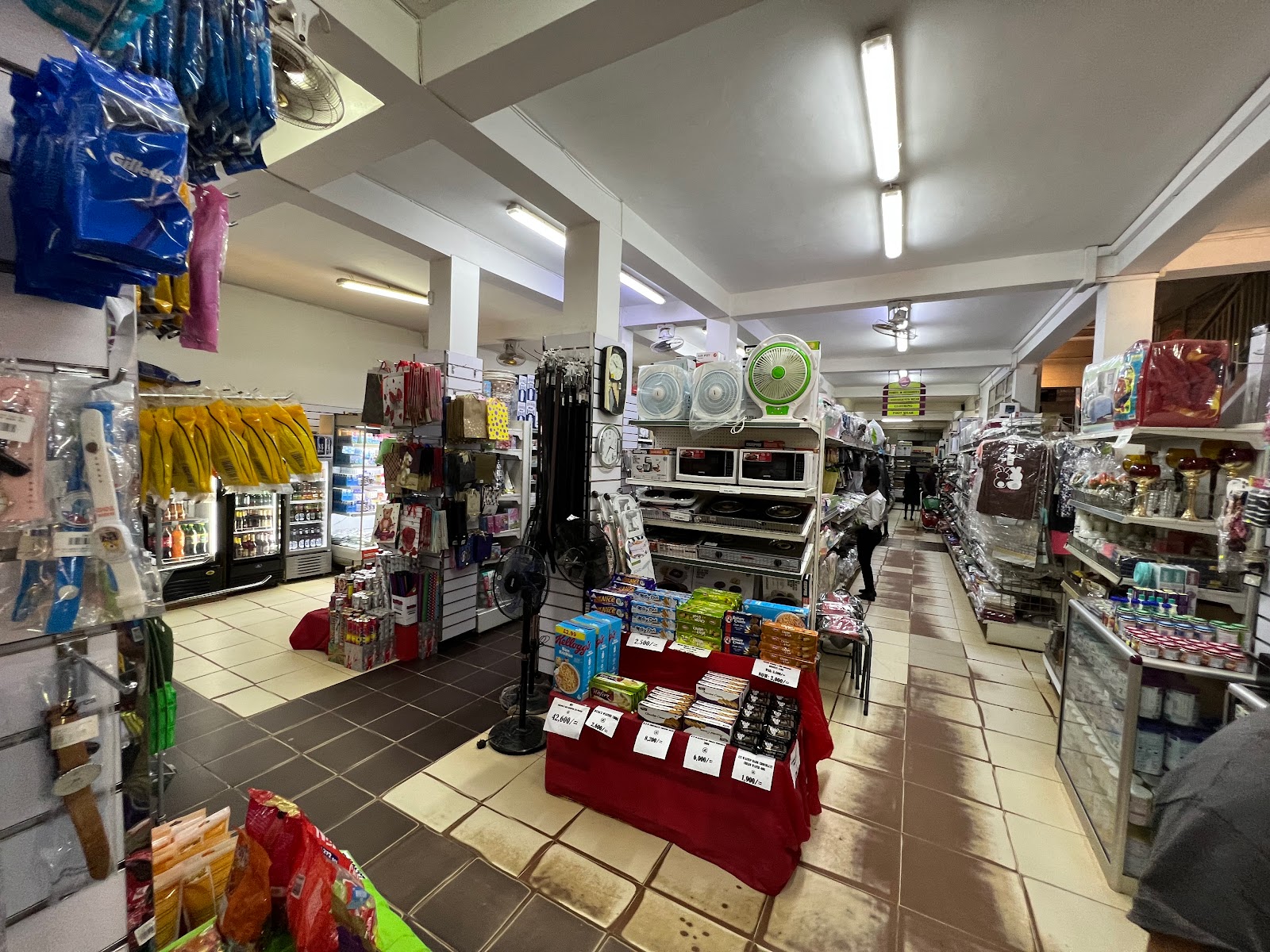Radio Stations and Supermarkets
Once again, I suck at writing this blog, but I've come to terms with it because I want to spend as much of my time as I can with the kids. I still take notes every day, so within these next few weeks I will hopefully catch up. No promises though.
The next day, we had breakfast with Tim and Janice, packed up the van, and said our goodbyes :( Ebola was spreading and dad thought it was best that I go home with him in case the country were to close borders or the ebola outbreak worsen. I was really sad, but I understood. We still had plans to go to Gulu and Arua before heading back to Kampala and then Entebbe.
We drove to Radio Pacis in Gulu because Will and dad were scheduled to do an interview about BUVs. On the way, we passed a guy walking on the road who was completely naked. Gift said that there is a whole district where people don't wear clothes. Once we got to the radio station, we were welcomed inside and sat in the sound proof room. Dad and Will had headsets on and answered all the questions. Will, who is the executive director of BUV, introduced dad as the director of partnerships, which was funny because dad is just a volunteer 😂.
After the radio, we went to a supermarket in Gulu called Cynibel and purchased samosas, pizza, chocolate, apples, rice, and some other snacks. This was the most "normal" looking store that I'd seen yet. We also went to a bank to exchange some money. I was astonished to read that the bank would give me a different exchange rate according to the type of bill I gave them. If I used $50s or $100s, the exchange rate was much better than if I were to give them $1s, $5s, $10s, or $20s. How bogus is that! I work at Kwik Trip back home, and people bring in bags of coins all the time. Even though I'd like to sometimes, I can't just tell them that their coins are worth less money than if they would've brought in bills. Crazy.
Gift told us that it's pretty common to see guys holding other guys' hands. It doesn't mean that they're gay. It just means that they are good friends. In fact, Gift told us that it is illegal to be gay in Uganda because it breaks the family structure.
We saw a car that was broken down on the side of the road, and instead of putting cones around it, Ugandans will put leaves by the vehicle to warn people. Dad said that if we did that in the US, the leaves and branches would last like 10 minutes in South Dakota because it's so windy.
Another difference from the roads in America is that many, many kids walk alone on the side of the road. Or, there will be groups of kids that walk together but look like they're no older than six years old.
Everyone here uses kilometers and kilograms, so I am constantly trying to convert in my head. 1kg is about 2.2lbs, and 1km is about 3/5 miles.
Last fun fact of the day about Uganda is that the women here, when working, do not bend their knees much. They hinge at the hip. To me, it seems like their backs would get sore, but Gift said that they don't do much movement up and down in that position. It is mostly just small lateral movements or movements with their arms, such as washing, planting, weeding, etc.
That night, we drove all the way up to Arua (which is close to the Democratic Republic of the Congo border) to meet with some guys from Empower 1. We met them for dinner and decided to wait until the morning to see their facilities and offices. Dad and Will tried the Nile perch, and I had some curry chicken dish. It was delicious. I don't remember the two names of the men pictured, but I do remember that one of them was telling us how to choose a wife haha. I don't know why there has been so much marriage advice on this trip, but it makes me laugh. He told us that the last girl he dated didn't really care about the mission work that he was doing, and that was really hard on him. He said that she didn't fit his standards of a godly woman and wasn't sure that he would want his future kids to be raised by her while he was at work. "No God, no marriage", he said. And I agree 😊. This same man also told us stories about when he would go to refugee camps and pray for people who were demon possessed. He said that you can just tell when someone is demon possessed or a witch doctor. One of the witch doctors came crawling up to him like a scorpion on his hands and feet. Witch doctors and demon possessed people seem to be a lot more common in Africa because I have never heard of anything like this happening in the US.










Comments
Post a Comment